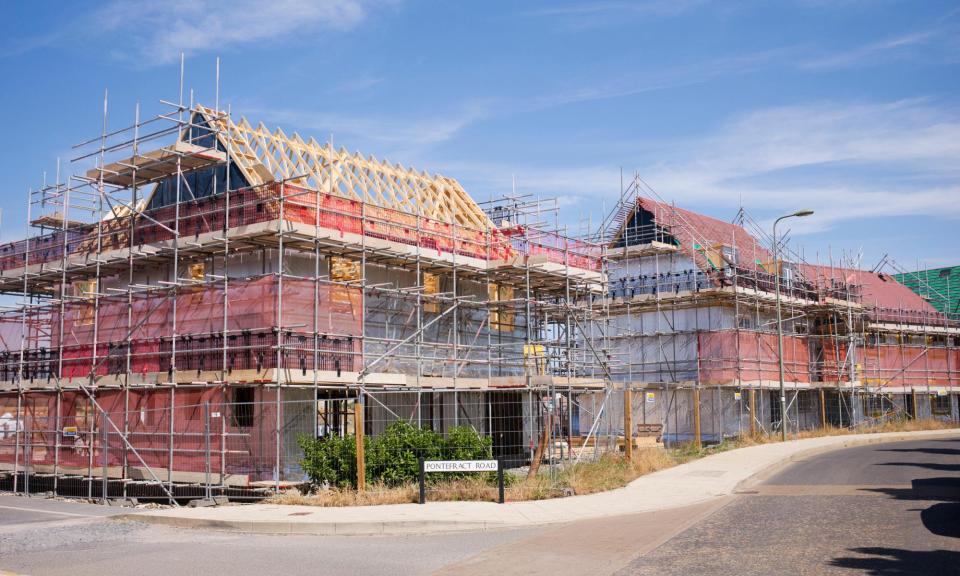Hopes of UK exit from recession boosted as GDP rises in January

A surge in high street and online spending helped Britain’s economy return to growth in January, boosting hopes that the recession of late 2023 will be short-lived.
The Office for National Statistics (ONS) said national output – as measured by gross domestic product (GDP) – rose by 0.2% in the first month of 2024, largely as a result of a sharp recovery in retail sales after December’s hefty drop.
The ONS said unless there were revisions to past growth figures it would now take monthly GDP falls of 0.3% in February and March for the recession to continue into the first quarter of 2024. The UK met the technical definition of recession after contracting in the third and fourth quarters of 2023.
Data from the UK’s official statistical body showed the 3.4% jump in retail spending was the main factor behind the 0.2% growth in the service sector in January. Higher spending on private healthcare also boosted service sector output.
A pickup in housebuilding was the main factor behind a 1.1% jump in construction output, but the production sector – which includes energy, mining and manufacturing – contracted by 0.2%.
The ONS cautioned against reading too much into one month’s figures and said that over the three months to January, GDP was 0.1% lower than in the three months to October 2023 and was 0.2% smaller than in the three months ending in January 2023. GDP per capita remains below its pre-pandemic level.
Liz McKeown, the ONS director of economic statistics, said: “The economy picked up in January with strong growth in retail and wholesaling. Construction also performed well with housebuilders having a good month, having been subdued for much of the last year."
“These were [partly] offset by falls in TV and film production, lawyers and the often-erratic pharmaceutical industry.”
Financial markets had expected a pick up in activity after December’s 0.1% contraction, with the consensus forecast among economists of a 0.2% increase.
Although the UK will officially remain in a shallow recession at least until the GDP figures for the first quarter of 2024 are released in May, the news of the slight rebound in growth came as a relief to the government.
The chancellor, Jeremy Hunt, said in last week’s budget that the economy had turned the corner after a period in which action by the Bank of England designed to tackle high inflation led to slower growth.
Responding to the January GDP figures, Hunt said: “While the last few years have been tough, today’s numbers show we are making progress in growing the economy – part of which makes it possible to bring down national insurance contributions by £900 this coming year. But if we want the rate of growth to pick up more we need to make work pay which means ending the unfairness of taxing work twice.”
Rachel Reeves, shadow chancellor, said: “After 14 years of economic decline under the Conservatives, Britain is worse off. Rishi Sunak’s claims that his plan is working are already in tatters after Britain was hit by recession last year.”
In the final six months of 2023, the economy grew only once – by 0.2% in November. Every other month recorded a fall or stagnation in GDP.
Yael Selfin, chief economist at KPMG UK, said: “Forward looking, indicators point to further strengthening of momentum in February, bolstering the prospect that the UK experienced a short and shallow recession. Although economic performance has somewhat improved, the outlook remains relatively gloomy.”
Susannah Streeter, head of money and markets at the analystHargreaves Lansdown, said: “The UK economy snapped back to growth in January, adding fuel to the fire of speculation that the recession will indeed be super-short and ultra-mild.
“The latest snapshot showed that GDP was estimated to have come in at 0.2%, and while the economy is hardly shooting the lights out in terms of growth, there will be relief that light has emerged at the end of a difficult tunnel for many companies.”

 Yahoo Finance
Yahoo Finance 